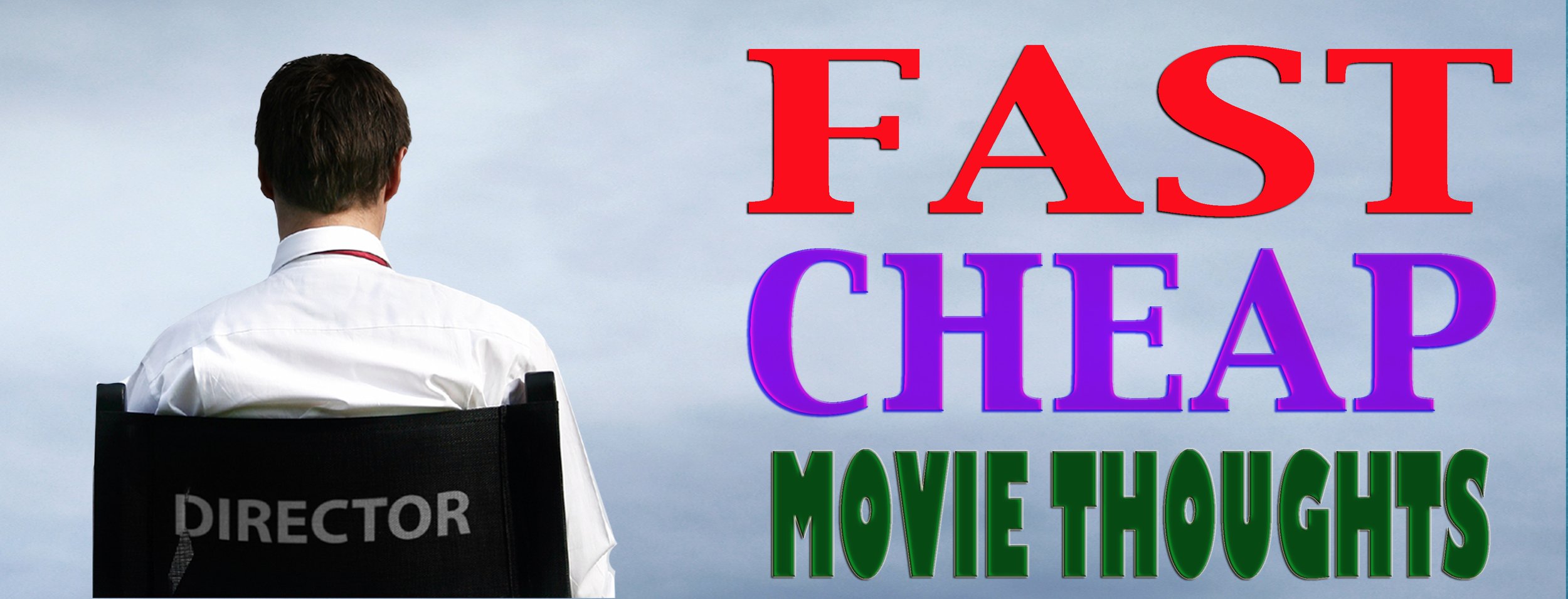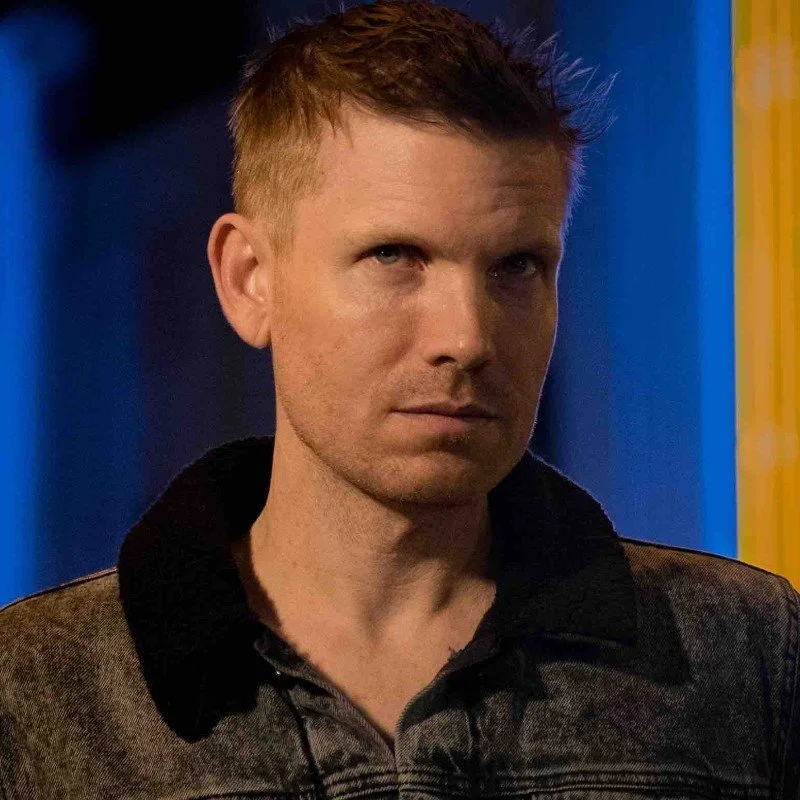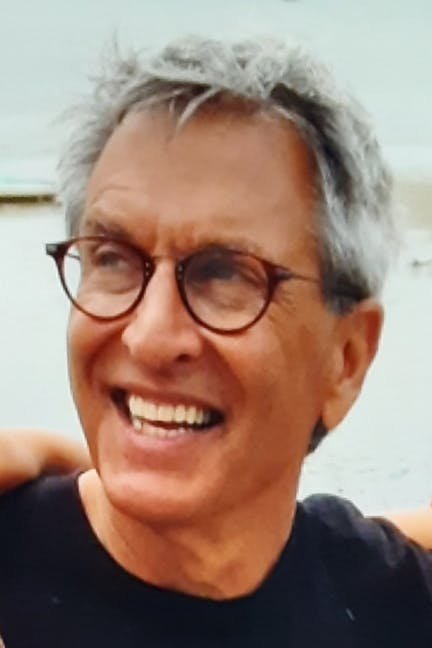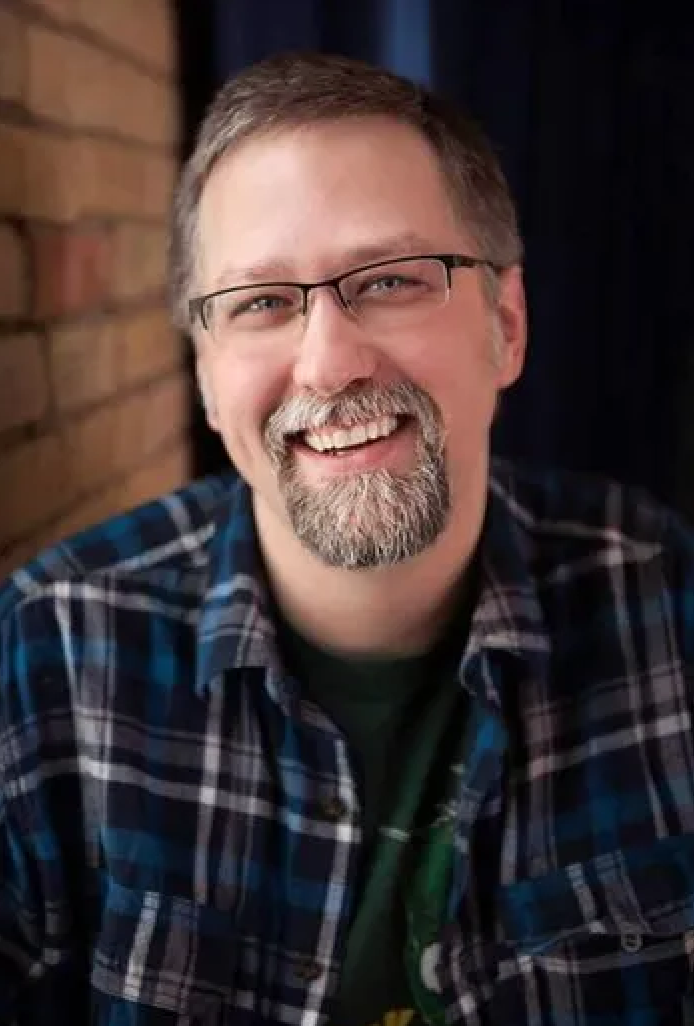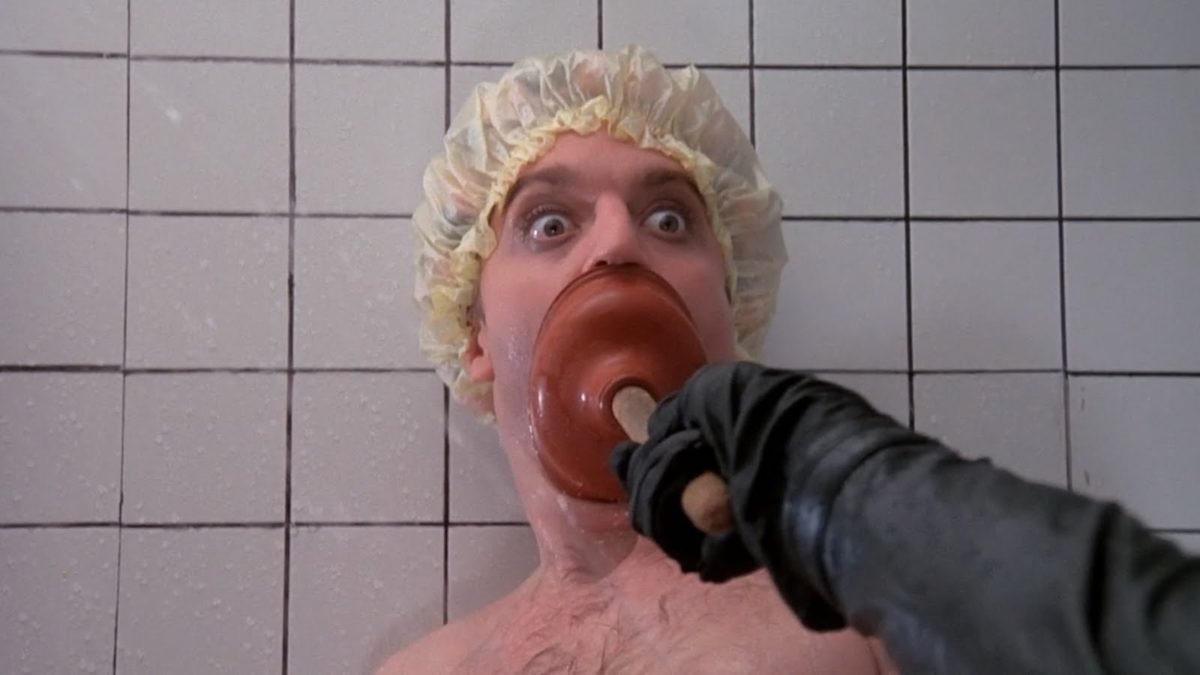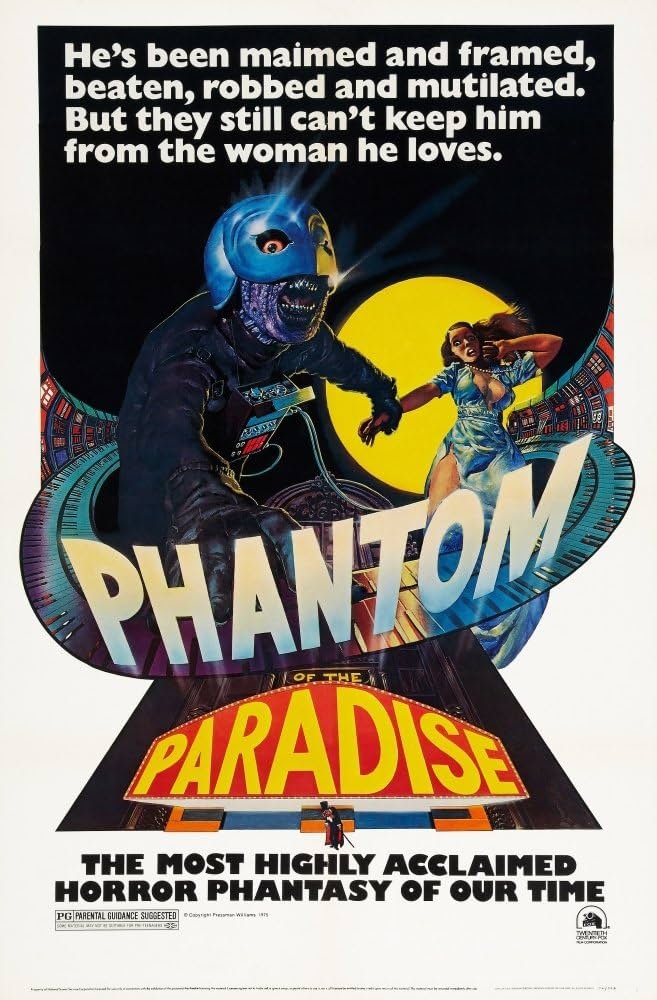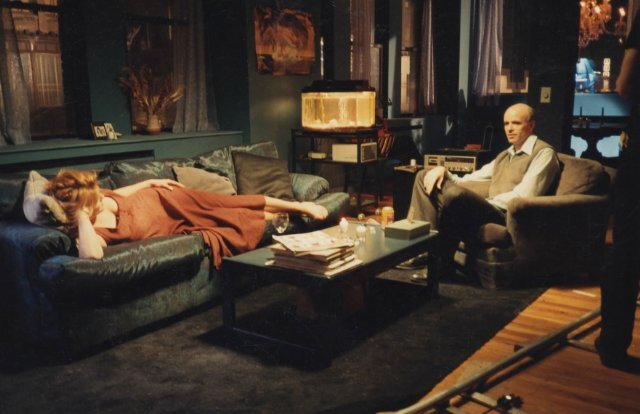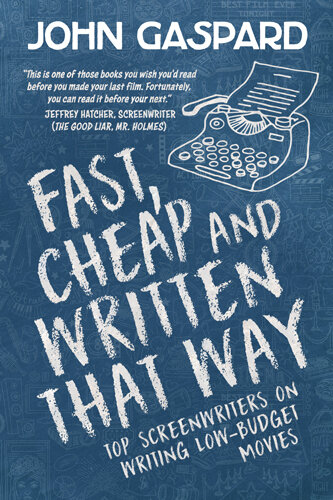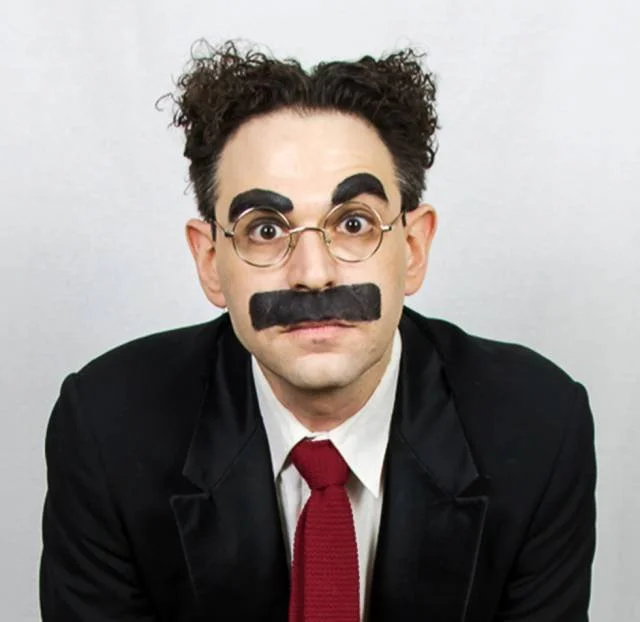John: Can you remember your very first mystery, a movie, book, TV show, play, a mystery that really captured your imagination?
Jeffrey: You know, I was thinking about this, and what came to mind was a Disney movie called Emile and the Detectives from 1964. So, I would have been six or seven years old. It's based on a series of German books by Eric Kastner about a young man named Emile and his group of friends who think of themselves as detectives. So, I remember that—I know that might've been the first film. And obviously it's not a play because, you know, little kids don't tend to go to stage thrillers or mysteries and, “Daddy, please take me to Sleuth.
But there was a show called Burke's Law that I really loved. Gene Barry played Captain Amos Burke of the Homicide Division in Los Angeles, and he was very rich. That was the bit. The bit was that Captain Burke drove around in a gorgeous Rolls Royce Silver Ghost, and he had a chauffeur. And every mystery was structured classically as a whodunit.
In fact, I think every title of every episode was “Who Killed Cock Robin?” “Who Killed Johnny Friendly?” that kind of thing.
And they would have a cast of well-known Hollywood actors, so they were all of equal status. Because I always think that's one of the easiest ways to guess the killer is if it's like: Unknown Guy, Unknown Guy, Derek Jacobi, Unknown Guy, Unknown Guy. It's always going to be Derek Jacobi.
John: Yeah, it's true. I remember that show. He was really cool.
Jim: Well, now I'm going to have to look that up.
Jeffrey: It had a great score, and he would gather all of the suspects, you know, at the end of the thing. I think my favorite was when he caught Paul Lynde as a murderer. And, of course, Paul Lynde, you know, kept it very low key when he was dragged off. He did his Alice Ghostly impersonation as he was taken away.
John: They did have very similar vocal patterns, those two.
Jeffrey: Yep. They're kind of the exact same person.
Jim: I never saw them together.
John: You might have on Bewitched.
Jim: You're probably right.
Jeffrey: Well, I might be wrong about this, either Alice Ghostly or Charlotte Ray went to school with Paul Lynde. And Charlotte Ray has that same sound too. You know, kind of warbly thing. Yes. I think they all went to Northwestern in the late 40s and early 50s. So maybe that was a way that they taught actors back then.
John: They learned it all from Marion Horne, who had the very same warble in her voice. So, as you got a little older, were there other mysteries that you were attracted to?
Jeffrey: Yeah. Luckily, my parents were very liberal about letting me see things that other people probably shouldn't have. I remember late in elementary school, fifth grade or so, I was reading Casino Royale. And one of the teachers said, “Well, you know, most kids, we wouldn't want to have read this, but it's okay if you do.”
And I thought, what's that? And I'm so not dangerous; other kids are, well they would be affected oddly by James Bond? But yeah, I, I love spy stuff. You know, The Man from Uncle and The Wild Wild West, all those kind of things. I love James Bond.
And very quickly I started reading the major mysteries. I think probably the first big book that I remember, the first novel, was The Hound of the Baskervilles. That's probably an entrance point for a lot of kids. So that's what comes in mind immediately.
Jim: I certainly revisit that on—if not yearly basis, at least every few years I will reread The Hound of the Baskervilles. Love that story. That's good. Do you have, Jeffrey, favorite mystery fiction writers?
Jeffrey: Oh, sure. But none of them are, you know, bizarre Japanese, Santa Domingo kind of writers that people always pull out of their back pockets to prove how cool they are. I mean, they're the usual suspects. Conan Doyle and Christie and Chandler and Hammett, you know, all of those. John Dickson Carr, all the locked room mysteries, that kind of thing.
I can't say that I go very far off in one direction or another to pick up somebody who's completely bizarre. But if you go all the way back, I love reading Wilkie Collins.
I've adapted at least one Wilkie Collins, and they read beautifully. You know, terrifically put together, and they've got a lot of blood and thunder to them. I think he called them sensation novels as opposed to mysteries, but they always have some mystery element.
And he was, you know, a close friend of Charles Dickens and Dickens said that there were some things that Collins taught him about construction. In those days, they would write their novels in installments for magazines. So, you know, the desire or the need, frankly, to create a cliffhanger at the end of every episode or every chapter seems to have been born then from a capitalist instinct.
John: Jeff, I know you studied acting. What inspired the move into playwriting?
Jeffrey: I don't think I was a very good actor. I was the kind of actor who always played older, middle aged or older characters in college and high school, like Judge Brack in Hedda Gabler, those kind of people. My dream back in those days was to play Dr. Dysart in Equus and Andrew Wyke in Sleuth. So, I mean, that was my target.
And then I moved to New York, and I auditioned for things and casting directors would say, “Well, you know, we actually do have 50 year old actors in New York and we don't need to put white gunk in their hair or anything like that. So, why don't you play your own age, 22 or 23?” And I was not very good at playing 22 or 23.
But I'd always done some writing, and a friend of mine, Graham Slayton, who was out at the Playwrights Center here, and we'd gone to college together. He encouraged me to write a play, you know, write one act, and then write a full length. So, I always say this, I think most people go into the theater to be an actor, you know, probably 98%, and then bit by bit, we, you know, we peel off. We either leave the profession completely or we become directors, designers, writers, what have you. So, I don't think it’s unnatural what I did. It’s very rare to be like a Tom Stoppard who never wanted to act. It's a lot more normal to find the Harold Pinter who, you know, acted a lot in regional theaters in England before he wrote The Caretaker.
Jim: Fascinating. Can we talk about Columbo?
Jeffrey: Oh, yes, please.
Jim: This is where I am so tickled pink for this conversation, because I was a huge and am a huge Peter Falk Columbo fan. I went back and watched the episode Ashes To Ashes, with Patrick McGowan that you created. Tell us how that came about.
Jeffrey: I too was a huge fan of Columbo in the 70s. I remember for most of its run, it was on Sunday nights. It was part of that murder mystery wheel with things like Hec Ramsey and McCloud, right? But Columbo was the best of those, obviously. Everything, from the structure—the inverted mystery—to thw guest star of the week. Sometimes it was somebody very big and exciting, like Donald Pleasence or Ruth Gordon, but often it was slightly TV stars on the skids.
John: Jack Cassidy,
Jim: I was just going to say Jack Cassidy.
Jeffrey: But at any rate, yeah, I loved it. I loved it. I remembered in high school, a friend and I doing a parody of Columbo where he played Columbo and I played the murderer of the week. And so many years later, when they rebooted the show in the nineties, my father died and I spent a lot of time at the funeral home with the funeral director. And having nothing to say to the funeral director one day, I said, “Have you got the good stories?”
And he told me all these great stories about, you know, bodies that weren't really in the casket and what you can't cremate, et cetera. So, I suddenly had this idea of a Hollywood funeral director to the stars. And, via my agent, I knew Dan Luria, the actor. He's a close friend or was a close friend of Peter's. And so, he was able to take this one-page idea and show it to Peter.
And then, one day, I get a phone call and it's, “Uh, hello Jeff, this is Peter Falk calling. I want to talk to you about your idea.” And they flew me out there. It was great fun, because Falk really ran the show. He was the executive producer at that point. He always kind of ran the show. I think he only wrote one episode, the one with Faye Dunaway, but he liked the idea.
I spent a lot of time with him, I'd go to his house where he would do his drawings back in the studio and all that. But what he said he liked about it was he liked a new setting, they always liked a murderer and a setting that was special, with clues that are connected to, say, the murderer's profession. So, the Donald Pleasant one about the wine connoisseur and all the clues are about wine. Or the Dick Van Dyke one, where he's a photographer and most of the clues are about photography. So, he really liked that. And he said, “You gotta have that first clue and you gotta have the pop at the end.”
So, and we worked on the treatment and then I wrote the screenplay. And then he asked McGoohan if he would do it, and McGoohan said, “Well, if I can direct it too.”
And, you know, I've adored McGoohan from, you know, Secret Agent and The Prisoner. I mean, I'd say The Prisoner is like one of my favorite television shows ever. So, the idea that the two of them were going to work together on that script was just, you know, it was incredible.
John: Were you able to be there during production at all?
Jeffrey: No, I went out there about four times to write, because it took like a year or so. It was a kind of laborious process with ABC and all that, but I didn't go out during the shooting.
Occasionally, this was, you know, the days of faxes, I'd get a phone call: “Can you redo something here?” And then I'd fax it out. So, I never met McGoohan. I would only fax with him.
But they built this whole Hollywood crematorium thing on the set. And Falk was saying at one point, “I'm getting pushback from Universal that we've got to do all this stuff. We've got to build everything.” And I was saying, “Well, you know, 60 percent of the script takes place there. If you're going to try to find a funeral home like it, you're going to have all that hassle.” And eventually they made the point that, yeah, to build this is going to cost less than searching around Hollywood for the right crematorium,
And it had a great cast, you know, it had Richard Libertini and Sally Kellerman, and Rue McClanahan was our murder victim.
Jim: I'll tell you every scene that Peter Falk and Mr. McGoohan had together. They looked to me as an actor, like they were having a blast being on together.
Jeffrey: They really loved each other. They first met when McGoohan did that episode, By Dawn's Early Light, where he played the head of the military school. It's a terrific episode. It was a great performance.
And although their acting styles are completely different, You know, Falk much more, you know, fifties, methody, shambolic. And McGoohan very, you know, his voice cracking, you know, and very affected and brittle. But they really loved each other and they liked to throw each other curveballs.
There are things in the, in the show that are ad libs that they throw. There's one bit, I think it's hilarious. It's when Columbo tells the murderer that basically knows he did it, but he doesn't have a way to nail him. And, McGoohan is saying, “So then I suppose you have no case, do you?” And Falk says, “Ah, no, sir, I don't.” And he walks right off camera, you know, like down a hallway. And McGoohan stares off and says, “Have you gone?” And none of that was scripted. Peter just walks off set. And if you watch the episode, they had to dub in McGoohan saying, “Have you gone,” because the crew was laughing at the fact that Peter just strolled away. So McGoohan adlibs that and then they had to cover it later to make sure the sound wasn't screwed up.
Jim: Fantastic.
John: Kudos to you for that script, because every piece is there. Every clue is there. Everything pays off. It's just it is so tight, and it has that pop at the end that he wanted. It's really an excellent, excellent mystery.
Jim: And a terrific closing line. Terrific closing line.
Jeffrey: Yeah, that I did right. That was not an ad lib.
Jim: It's a fantastic moment. And he, Peter Falk, looks just almost right at the camera and delivers that line as if it's, Hey, check this line out. It was great. Enjoyed every minute of it. Can we, um, can I ask some questions about Sherlock Holmes now?
Jeffrey: Oh, yes.
Jim: So, I enjoyed immensely Holmes and Watson that I saw a couple summers ago at Park Square. I was completely riveted and had no, absolutely no idea how it was going to pay off or who was who or what. And when it became clear, it was so much fun for me as an audience member. So I know that you have done a number of Holmes adaptations.
There's Larry Millet, a St. Paul writer here and I know you adapted him, but as far as I can tell this one, pillar to post was all you. This wasn't an adaptation. You created this out of whole cloth. Am I right on that?
Jeffrey: Yes. The, the idea came from doing the Larry Millet one, actually, because Steve Hendrickson was playing Holmes. And on opening night—the day of opening night—he had an aortic aneurysm, which they had to repair. And so, he wasn't able to do the show. And Peter Moore, the director, he went in and played Holmes for a couple of performances. And then I played Holmes for like three performances until Steve could get back.
But in the interim, we've sat around saying, “All right, who can we get to play the role for like a week?” And we thought about all of the usual suspects, by which I mean, tall, ascetic looking actors. And everybody was booked, everybody was busy. Nobody could do it. So that's why Peter did it, and then I did it.
But it struck me in thinking about casting Holmes, that there are a bunch of actors that you would say, you are a Holmes type. You are Sherlock Holmes. And it suddenly struck me, okay, back in the day, if Holmes were real, if he died—if he'd gone over to the falls of Reichenbach—people probably showed up and say, “Well, I'm Sherlock Holmes.”
So, I thought, well, let's take that idea of casting Holmes to its logical conclusion: That a couple of people would come forward and say, “I'm Sherlock Holmes,” and then we'd wrap it together into another mystery. And we're sitting around—Bob Davis was playing Watson. And I said, “So, maybe, they're all in a hospital and Watson has to come to figure out which is which. And Bob said, “Oh, of course, Watson's gonna know which one is Holmes.”
And that's what immediately gave me the idea for the twist at the end, why Watson wouldn't know which one was Holmes. So, I'm very grateful whenever an idea comes quickly like that, but it depends on Steve getting sick usually.
Jim: Well, I thoroughly enjoyed it. If it's ever staged again anywhere, I will go. There was so much lovely about that show, just in terms of it being a mystery. And I'm a huge Sherlock Holmes fan. I don't want to give too much away in case people are seeing this at some point, but when it starts to be revealed—when Pierce's character starts talking about the reviews that he got in, in the West End—I I almost wet myself with laughter. It was so perfectly delivered and well written. I had just a great time at the theater that night.
Jeffrey: It's one of those things where, well, you know how it is. You get an idea for something, and you pray to God that nobody else has done it. And I couldn't think of anybody having done this bit. I mean, some people have joked and said, it's kind of To Tell the Truth, isn't it? Because you have three people who come on and say, “I'm Sherlock Holmes.” “I'm Sherlock Holmes.” “I'm Sherlock Holmes.” Now surely somebody has done this before, but Nobody had.
Jim: Well, it's wonderful.
John: It's all in the timing. So, what is the, what's the hardest part about adapting Holmes to this stage?
Jeffrey: Well, I suppose from a purist point of view‑by which I mean people like the Baker Street Irregulars and other organizations like that, the Norwegian Explorers here in Minnesota‑is can you fit your own‑they always call them pastiches, even if they're not comic‑can you fit your own Holmes pastiche into the canon?
People spend a lot of time working out exactly where Holmes and Watson were on any given day between 1878 and 1930. So, one of the nice things about Holmes and Watson was, okay, so we're going to make it take place during the three-year interregnum when Holmes is pretending to be dead. And it works if you fit Holmes and Watson in between The Final Problem and The Adventure of the Empty House, it works. And that's hard to do.
I would say, I mean, I really love Larry Millett's book and all that, but I'm sure it doesn't fit, so to speak. But that's up to you to care. If you're not a purist, you can fiddle around any old way you like. But I think it's kind of great to, to, to have the, the BSI types, the Baker Street Irregular types say, “Yes, this clicked into place.”
Jim: So that's the most difficult thing. What's the easiest part?
Jeffrey: Well, I think it's frankly the language, the dialogue. Somebody pointed out that Holmes is the most dramatically depicted character in history. More than Robin Hood, more than Jesus Christ. There are more actor versions of Holmes than any other fictional character.
We’ve been surrounded by Holmes speak. Either if we've read the books or seen the movies or seen any of the plays for over 140 years. Right. So, in a way, if you're like me, you kind of absorb that language by osmosis.
So, for some reason, it's very easy for me to click into the way I think Holmes talks. That very cerebral, very fast, sometimes complicated syntax. That I find probably the easiest part. Working out the plots, you want them to be Holmesian. You don't want them to be plots from, you know, don't want the case to be solved in a way that Sam Spade would, or Philip Marlowe would. And that takes a little bit of work. But for whatever reason, it's the actor in you, it's saying, all right, if you have to ad lib or improv your way of Sherlock Holmes this afternoon, you know, you'd be able to do it, right? I mean, he really has permeated our culture, no matter who the actor is.
Jim: Speaking of great actors that have played Sherlock Holmes, you adapted a movie that Ian McKellen played, and I just watched it recently in preparation for this interview.
Having not seen it before, I was riveted by it. His performance is terrific and heartbreaking at the same time. Can we talk about that? How did you come to that project? And just give us everything.
Jeffrey: Well, it's based on a book called A Slight Trick of the Mind by Mitch Cullen, and it's about a very old Sherlock Holmes in Surrey, tending to his bees, as people in Holmesland know that he retired to do. And it involves a couple of cases, one in Japan and one about 20 years earlier in his life that he's trying to remember.
And it also has to do with his relationship with his housekeeper and the housekeeper's son. The book was given to me by Anne Carey, the producer, and I worked on it probably off and on for about five years.
A lot of time was spent talking about casting, because you had to have somebody play very old. I remember I went to meet with Ralph Fiennes once because we thought, well, Ralph Fiennes could play him at his own age,‑then probably his forties‑and with makeup in the nineties.
And Ralph said‑Ralph was in another film that I'd done‑and he said, “Oh, I don't wear all that makeup. That's just far too much.” And I said, “Well, you did in Harry Potter and The English Patient, you kind of looked like a melted candle.” And he said, “Yes, and I don't want to do that again.”
So, we always had a very short list of actors, probably like six actors in the whole world And McKellen was one of them and we waited for him to become available And yeah, he was terrific. I'll tell you one funny story: One day, he had a lot of prosthetics, not a lot, but enough. He wanted to build up his cheekbones and his nose a bit. He wanted a bit, he thought his own nose was a bit too potatoish. So, he wanted a more Roman nose. So, he was taking a nap one day between takes. And they brought him in, said, “Ian, it's time for you to do the, this scene,” and he'd been sleeping, I guess, on one side, and his fake cheek and his nose had moved up his face. But he hadn't looked in the mirror, and he didn't know. So he came on and said, “Very well, I'm all ready to go.” And it was like Quasimodo.
It's like 5:52 and they're supposed to stop shooting at six. And there was a mad panic of, Fix Ian's face! Get that cheekbone back where it’s supposed to be! Knock that nose into place! A six o'clock, we go into overtime!” But it was very funny that he hadn't noticed it. You kind of think you'd feel if your own nose or cheekbone had been crushed, but of course it was a makeup. So, he didn't feel anything.
Jim: This is just the, uh, the actor fan boy in me. I'm an enormous fan of his work straight across the board. Did you have much interaction with him and what kind of fella is he just in general?
Jeffrey: He's a hoot. Bill Condon, the director, said, “Ian is kind of methody. So, when you see him on set, he'll be very decorous, you know, he'll be kind of like Sherlock Holmes.” And it was true, he goes, “Oh, Jeffrey Hatcher, it's very good to meet you.” And he was kind of slow talking, all that. Ian was like 72 then, so he wasn't that old. But then when it was all over, they were doing all those--remember those ice Dumps, where people dump a tub of ice on you? You have these challenges? A the end of shooting, they had this challenge, and Ian comes out in short shorts, and a bunch of ballet dancers surrounds him. And he's like, “Alright, everyone, let's do the ice challenge.” And, he turned into this bright dancer. He's kind of a gay poster boy, you know, ever since he was one of the most famous coming out of the last 20 some years. So, you know, he was suddenly bright and splashy and, you know, all that old stuff dropped away.
He has all of his headgear at his house and his townhouse. He had a party for us at the end of shooting. And so, there's a Gandalf's weird hat and there's Magneto's helmet, you know, along with top hats and things like that. And they're all kind of lined up there. And then people in the crew would say, can I take a picture of you as Gandalf? “Well, why, of course,” and he does all that stuff. So no, he's wonderful.
Jim: You do a very good impression as well. That was great. Now, how did you come to the project, The Good Liar, which again, I watched in preparation for this and was mesmerized by the whole thing, especially the mystery part of it, the ending, it was brilliant.
How did you come to that project?
Jeffrey: Well, again, it was a book and Warner Brothers had the rights to it. And because Bill and I had worked on Mr. Holmes--Bill Condon--Bill was attached to direct. And so I went in to talk about how to adapt it.
This is kind of odd. It's again based in McKellen. In the meeting room at Warner Brothers, there was a life size version of Ian as Gandalf done in Legos. So, it was always, it'll be Ian McKellen and somebody in The Good Liar. Ian as the con man. And that one kind of moved very quickly, because something changed in Bill Condon's schedule. Then they asked Helen Mirren, and she said yes very quickly.
And it's a very interesting book, but it had to be condensed rather a lot. There's a lot of flashbacks and going back and forth in time. And we all decided that the main story had to be about this one con that had a weird connection to the past. So, a lot of that kind of adaptation work is deciding what not to include, so you can't really be completely faithful to a book that way. But I do take the point with certain books. When my son was young, he'd go to a Harry Potter movie, and he'd get all pissed off. Pissed off because he'd say Dobby the Elf did a lot more in the book.
But if it's a book that's not quite so well-known—The Good Liar isn't a terribly well-known book, nor was A Slight Trick of the Mind--you're able to have a lot more room to play.
Jim: It's a very twisty story. Now that you're talking about the book, I'll probably have to go get the book and read it just for comparison. But what I saw on the screen, how did you keep it--because it was very clear at the end--it hits you like a freight train when it all sort of unravels and you start seeing all of these things. How did you keep that so clear for an audience? Because I'll admit, I'm not a huge mystery guy, and I'm not the brightest human, and yet I was able to follow that story completely.
Jeffrey: Well, again, I think it's mostly about cutting things, I'm sure. And there are various versions of the script where there are a lot of other details. There's probably too much of one thing or another. And then of course, you know, you get in the editing room and you lose a couple of scenes too. These kinds of things are very tricky. I'm not sure that we were entirely successful in doing it, because you say, which is more important, surprise or suspense? Hitchcock used to have that line about, suspense is knowing there's a bomb under the table. And you watch the characters gather at the table. As opposed to simply having a bomb blow up and you didn't know about it.
So, we often went back and forth about Should we reveal that the Helen Mirren character knows that Ian's character is doing something bad? Or do we try to keep it a secret until the end? But do you risk the audience getting ahead of you? I don't mind if the audience is slightly ahead. You know, it's that feeling you get in the theater where there's a reveal and you hear a couple of people say, “Oh, I knew it and they guessed it may be a minute before. But you don't want to get to the point where the audience is, you know, 20 minutes or a half an hour ahead of you.
Jim: I certainly was not, I was not in any way. It unfolded perfectly for me in terms of it being a mystery and how it paid off. And Helen Mirren was brilliant. In fact, for a long time during it, I thought they were dueling con men, the way it was set up in the beginning where they were both entering their information and altering facts about themselves.
I thought, “Oh, well, they're both con men and, and now we're going to see who is the better con man in the end.” And so. when it paid off. In a way different sort of way, it was terrific for me. Absolutely.
Jeffrey: Well, and I thank you. But in a way, they were both con men.
Jim: Yes, yes. But she wasn't a professional con man.
Jeffrey: She wasn’t just out to steal the money from him. She was out for something else. She was out for vengeance.
Jim: Yes. Very good. Very, if you haven't seen it, The Good Liar folks, don't wait. I got it on Amazon prime and so can you.
Jeffrey: I watched them do a scene, I was over there for about five days during the shooting.
And watching the two of them work together was just unbelievable. The textures, the tones, the little lifts of the eyebrow, the shading on one word versus another. Just wonderful, wonderful stuff.
Jim: Yeah. I will say I am a huge Marvel Cinematic Universe fan along with my son. We came to those together and I'm a big fan of that sort of movie. So I was delighted by this, because it was such a taut story. And I was involved in every second of what was going on and couldn't quite tell who the good guys were and who the bad guys were and how is this going to work and who's working with who?
And it was great. And in my head, I was comparing my love for that sort of big blow it up with rayguns story to this very cerebral, internal. And I loved it, I guess is what I'm saying. And, I am, I think, as close to middle America as you're going to find in terms of a moviegoer. And I thought it was just dynamite.
Jeffrey: It was very successful during the pandemic--so many things were when people were streaming--but it was weirdly successful when it hit Amazon or Netflix or whatever it was. And, I think you don't have to be British to understand two elderly people trying to find a relationship. And then it turns out that they both have reasons to hate and kill each other. But nonetheless, there is still a relationship there. So, I pictured a lot of lonely people watching The Good Liar and saying, “Yeah, I'd hang out with Ian McKellen, even if he did steal all my money.”
John: Well, speaking of movies, I am occasionally handed notes here while we're live on the air from my wife. And she wants you to just say something about the adaptation you did of your play, Stage Beauty, and what that process was like and how, how that process went.
Jeffrey: That was terrific because, primarily Richard Eyre--the director who used to run the National Theater and all that--because he's a theater man and the play’s about theater. I love working with Bill Condon and I've loved working with Lassa Hallstrom and other people, but Richard was the first person to direct a film of any of my stuff. And he would call me up and say, “Well, we're thinking of offering it to Claire Danes.” or we're thinking…
And usually you just hear later, Oh, somebody else got this role. But the relationship was more like a theater director and a playwright. I was there on set for rehearsals and all that.
Which I haven't in the others. No, it was a wonderful experience, but I think primarily because the, the culture of theater saturated the process of making it and the process of rehearsing it and—again--his level of respect. It’s different in Hollywood, everybody's very polite, they know they can fire you and you know, they can fire you and they're going to have somebody else write the dialogue if you're not going to do it, or if you don't do it well enough.
In the theater, we just don't do that. It's a different world, a different culture, different kind of contracts too. But Richard really made that wonderful. And again, the cast that he put together: Billy Crudup and Claire and Rupert Everett and Edward Fox and Richard Griffiths.
I remember one day when I was about to fly home, I told Richard Griffiths what a fan Evan-- my son, Evan--was of him in the Harry Potter movie. And he made his wife drive an hour to come to Shepperton with a photograph of him as Mr. Dursley that he could autograph for my son.
John: Well, speaking of stage and adaptations, before we go into our lightning round here, you did two recent adaptations of existing thrillers--not necessarily mysteries, but thrillers--one of which Hitchcock made into a movie, which are Dial M for Murder and Wait Until Dark. And I'm just wondering what was that process for you? Why changes need to be made? And what kind of changes did you make?
Jeffrey: Well, in both cases, I think you could argue that no, changes don't need to be made. They're wildly successful plays by Frederick Knott, and they've been successful for, you know, alternately 70 or 60 years.
But in both cases, I got a call from a director or an artistic director saying, “We'd like to do it, but we'd like to change this or that.” And I'm a huge fan of Frederick Knott. He put things together beautifully. The intricacies of Dial M for Murder, you don't want to screw around with. And there are things in Wait Until Dark having to do just with the way he describes the set, you don't want to change anything or else the rather famous ending won't work.
But in both cases, the women are probably not the most well drawn characters that he ever came up with. And Wait Until Dark, oddly, they're in a Greenwich Village apartment, but it always feels like they're really in Westchester or in Terre Haute, Indiana. It doesn't feel like you're in Greenwich Village in the 60s, especially not in the movie version with Audrey Hepburn.
So, the director, Matt Shackman, said, why don't we throw it back into the 40s and see if we can have fun with that. And so it played out: The whole war and noir setting allowed me to play around with who the main character was. And I know this is a cliche to say, well, you know, can we find more agency for female characters in old plays or old films? But in a sense, it's true, because if you're going to ask an actress to play blind for two hours a night for a couple of months, it can't just be, I'm a blind victim. And I got lucky and killed the guy. You’ve got a somewhat better dialogue and maybe some other twists and turns. nSo that's what we did with Wait Until Dark.
And then at The Old Globe, Barry Edelstein said, “well, you did Wait Until Dark. What about Dial? And I said, “Well, I don't think we can update it, because nothing will work. You know, the phones, the keys. And he said, “No, I'll keep it, keep it in the fifties. But what else could you What else could you do with the lover?”
And he suggested--so I credit Barry on this--why don't you turn the lover played by Robert Cummings in the movie into a woman and make it a lesbian relationship? And that really opened all sorts of doors. It made the relationship scarier, something that you really want to keep a secret, 1953. And I was luckily able to find a couple of other plot twists that didn't interfere with any of Knott's original plot.
So, in both cases, I think it's like you go into a watch. And the watch works great, but you want the watch to have a different appearance and a different feel when you put it on and tick a little differently.
John: We've kept you for a way long time. So, let's do this as a speed round. And I know that these questions are the sorts that will change from day to day for some people, but I thought each of us could talk about our favorite mysteries in four different mediums. So, Jeff, your favorite mystery novel”
Jeffrey: And Then There Were None. That's an easy one for me.
John: That is. Jim, do you have one?
Jim: Yeah, yeah, I don't read a lot of mysteries. I really enjoyed a Stephen King book called Mr. Mercedes, which was a cat and mouse game, and I enjoyed that quite a bit. That's only top of mind because I finished it recently.
John: That counts.
Jim: Does it?
John: Yeah. That'll count.
Jim: You're going to find that I am so middle America in my answers.
John: That's okay. Mine is--I'm going to cheat a little bit and do a short story--which the original Don't Look Now that Daphne du Murier wrote, because as a mystery, it ties itself up. Like I said earlier, I like stuff that ties up right at the end. And it literally is in the last two or three sentences of that short story where everything falls into place. Jeff, your favorite mystery play? I can be one of yours if you want.
Jeffrey: It’s a battle between Sleuth or Dial M for Murder. Maybe Sleuth because I always wanted to be in it, but it's probably Dial M. But it's also followed up very quickly by Death Trap, which is a great comedy-mystery-thriller. It's kind of a post-modern, Meta play, but it's a play about the play you're watching.
John: Excellent choices. My choice is Sleuth. You did have a chance to be in Sleuth because when I directed it, you're the first person I asked. But your schedule wouldn't let you do it. But you would have been a fantastic Andrew Wyke. I'm sorry our timing didn't work on that.
Jeffrey: And you got a terrific Andrew in Julian Bailey, but if you wanted to do it again, I'm available.
John: Jim, you hear that?
Jim: I did hear that. Yes, I did hear that.
John: Jim, do you have a favorite mystery play?
Jim: You know, it's gonna sound like I'm sucking up, but I don't see a lot of mystery plays. There was a version of Gaslight that I saw with Jim Stoll as the lead. And he was terrific.
But I so thoroughly enjoyed Holmes and Watson and would love the opportunity to see that a second time. I saw it so late in the run and it was so sold out that there was no coming back at that point to see it again. But I would love to see it a second time and think to myself, well, now that you know what you know, is it all there? Because my belief is it is all there.
John: Yeah. Okay. Jeff, your favorite TV mystery?
Jeffrey: Oh, Columbo. That's easy. Columbo.
John: I'm gonna go with Poker Face, just because the pace on Poker Face is so much faster than Columbo, even though it's clearly based on Columbo. Jim, a favorite TV mystery?
Jim: The Rockford Files, hands down.
John: Fair enough. Fair enough. All right. Last question all around. Jeff, your favorite mystery movie?
Jeffrey: Laura.
Jim: Ah, good one.
John: I'm going to go with The Last of Sheila. If you haven't seen The Last of Sheila, it's a terrific mystery directed by Herbert Ross, written by Stephen Sondheim and Anthony Perkins. Fun little Stephen Sondheim trivia. The character of Andrew Wyke and his house were based on Stephen Sondheim.
Jeffrey: Sondheim’s townhouse has been for sale recently. I don't know if somebody bought it, but for a cool seven point something million, you're going to get it.
John: All right. Let's maybe pool our money. Jim, your favorite mystery movie.
Jim: I'm walking into the lion's den here with this one. Jeffrey, I hope this is okay, but I really enjoyed the Robert Downey Jr. Sherlock Holmes movies. And I revisit the second one in that series on a fairly regular basis, The Game of Shadows. I thought I enjoyed that a lot. Your thoughts on those movies quickly?
Jeffrey: My only feeling about those is that I felt they were trying a little too hard not to do some of the traditional stuff. I got it, you know, like no deer stalker, that kind of thing. But I thought it was just trying a tad too hard to be You know, everybody's very good at Kung Fu, that kind of thing.
Jim: Yes. And it's Sherlock Holmes as a superhero, which, uh, appeals to me.
Jeffrey: I know the producer of those, and I know Guy Ritchie a little bit. And, I know they're still trying to get out a third one.
Jim: Well, I hope they do. I really hope they do. Cause I enjoyed that version of Sherlock Holmes quite a bit. I thought it was funny and all of the clues were there and it paid off in the end as a mystery, but fun all along the road.
Jeffrey: And the main thing they got right was the Holmes and Watson relationship, which, you know, as anybody will tell you, you can get a lot of things wrong, but get that right and you're more than two thirds there.

